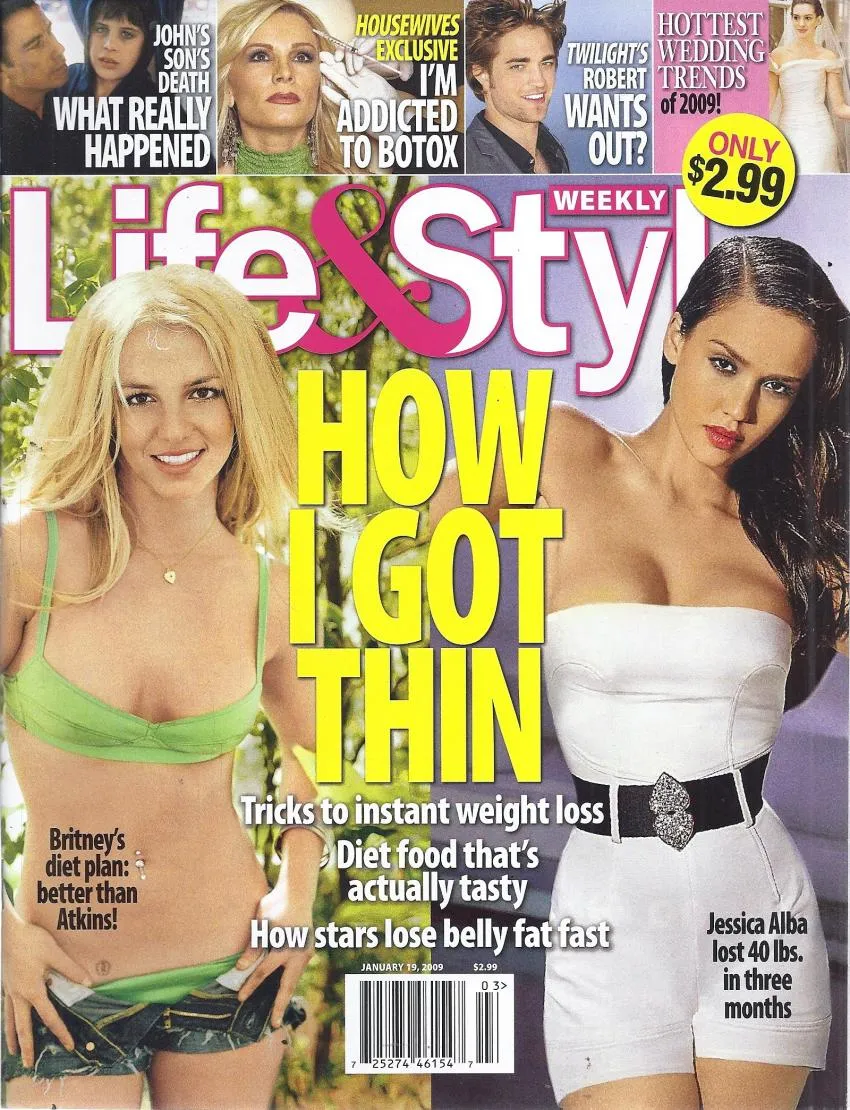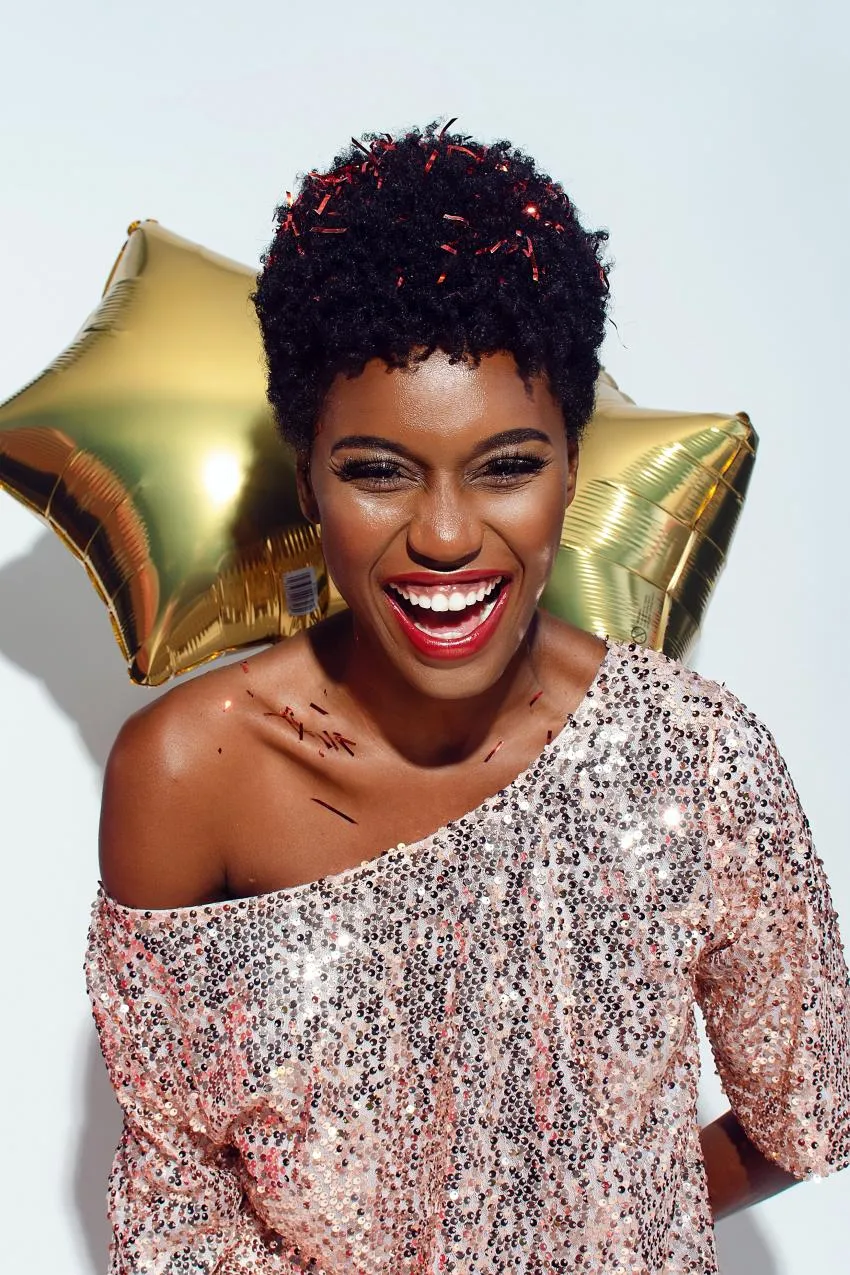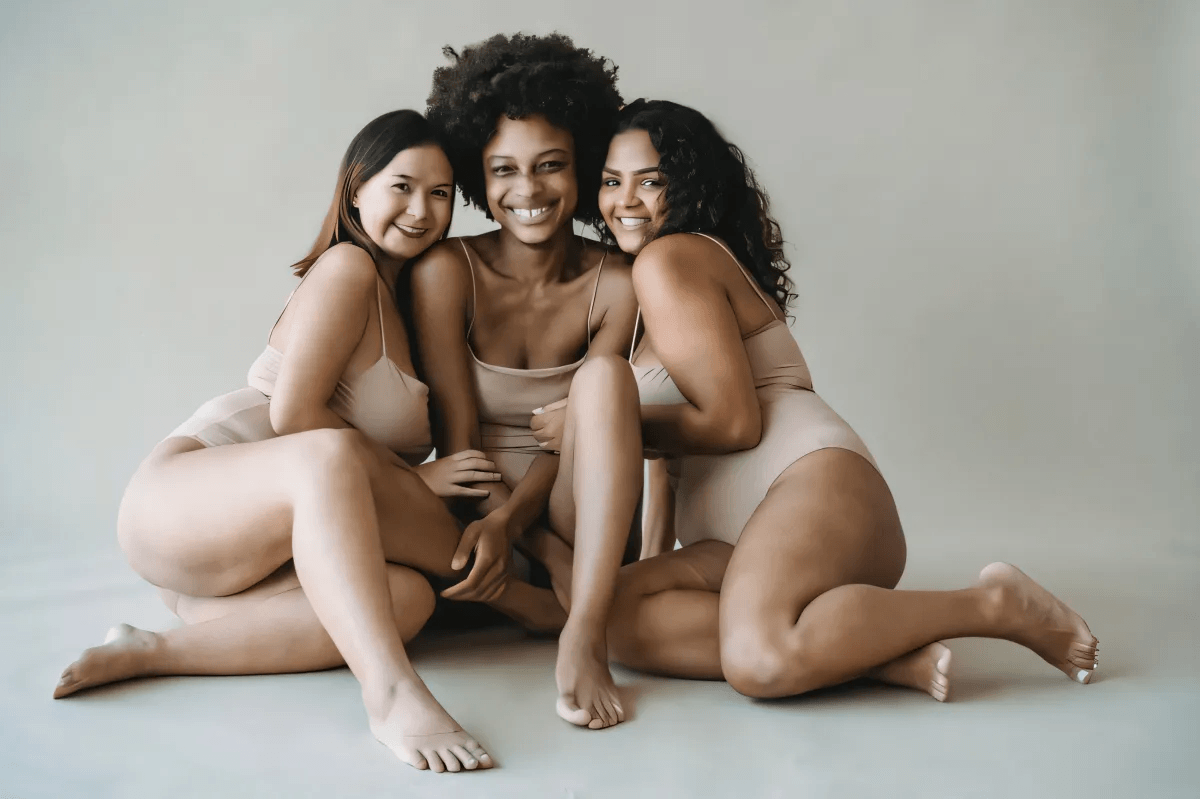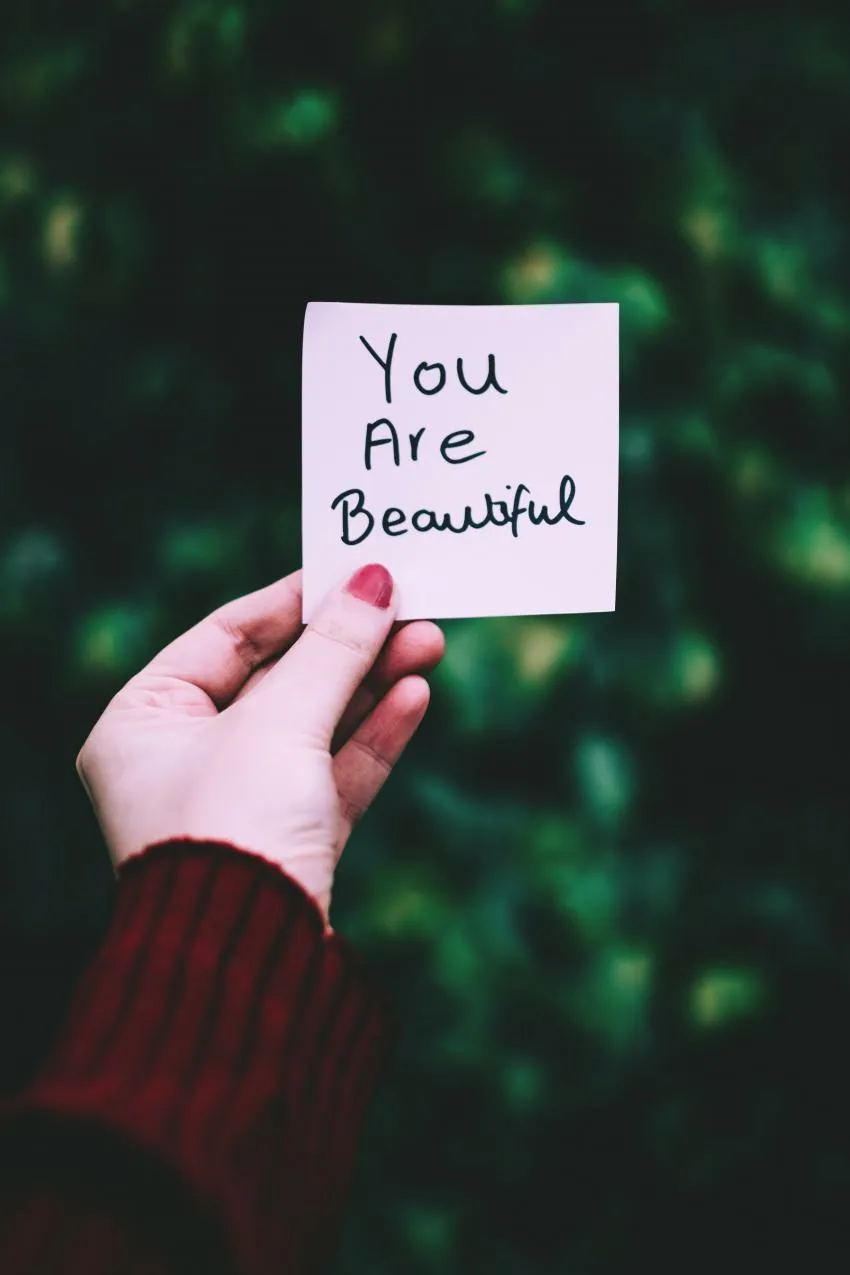Finally, A New Body Type System That Makes You Feel Good About Yourself

Picture this. In the dystopia that is our locked down, masked-up world, you find yourself aimlessly scrolling through Instagram when all of a sudden, inspiration strikes.
You’ve been awakened. Either by your favourite fashion influencer (I still cringe at that word), or fast-fashion brand, or your ok-that’ll-definitely-need-to-go-on-Afterpay-because-there’s-no-way-on-Earth-I-can-afford-that-but-I-have-to-have-it brand.
You’ve fallen head over heels for an outfit or a garment and you’ve checked out faster than it took for your leftover takeaway to heat up. Bonus points if you found a discount code.
Breathlessly, you check your package tracking details eagerly anticipating an update until two to five business days later, the delivery driver heralds its arrival.
You tear open the packaging, eager for SOMETHING that could retire your tracksuit combo from your everyday rotation, maybe do a quick change in the hallway, head for the nearest mirror, and…
“Oh”.
It’s underwhelming.
Maybe, dare I say, ill-fitting?
But it didn’t look like that on the model!
So you take a deep breath and make a decision; you either whisper to yourself “I can make it work” or you begrudgingly slip it back into its plastic bag and cop the store credit. Days later, you probably see the same garment in another Instagram post and, to quote fashion goddess Carrie Bradshaw, you probably “couldn’t help but wonder” why it didn’t work on you.
Like any millennial or even Gen Zer, you’ve probably grown up in the glossy magazine era – catty, schoolgirl-like headlines screaming at you while you’re in line for the checkout.
This was the who-wore-it-better period or the days when it was ok to sandwich bikini photos of the same celebrity between a headline exclaiming how fat or skinny they’ve become.
The same magazines, confident its headlines snagged your attention, lured you in to tear at your self-confidence by evaluating your own body. Writers informed you if you were not born with an hourglass figure, then not only were you reduced to a fruit or a geometric shape devoid of womanliness, but you simply MUST dress to contort your body until you fit the mould.

Image source: The Hollywood Gossip

Image source: Amazon.com
In my years of experience in various changing rooms, I overheard women with their daughters talk about this archaic body type system as if it were a rite of passage. “Oh honey, you and I are both apples; we can’t pull off dresses like that” or “I’m a rectangle; I would kill to have a waist like yours”.
This mindset breeds negative self-talk not only amongst mature women whose bodies have endured pregnancy and childbirth but also among growing teenage girls whose identity and self-worth are still malleable.
As I’m writing this article, I did a quick google search for apple or pear body shapes and the results were heart-breaking.
The number one search result came from Mayo Clinic, a reputable healthcare website, with a snippet reading “people who have metabolic syndrome typically have apple-shaped bodies, meaning they have larger waists and carry a lot of weight”.
Scrolling further down, Ace Fitness’s headline reads “Are you an apple or a pear? How to eat for specific body types” and Penn Medicine informs the reader (who at this point most likely feels like *&^%) “What your body shape reveals about your health”.
It isn’t a stretch to imagine the toll the simplification of a woman’s body takes on mental health.

Image source: Pexels
Northwestern University Professor Renee Engeln told online news publication Quartz the objectification of a woman’s body, in this case likening a woman to fruit or shape, “increases body shame, which is linked with depression and eating disordered behaviours”.
“Researchers generally use the term objectification to capture the psychological experience of having one’s body treated like or turned into an object for others to evaluate,” she said.
Hertfordshire University fashion psychologist Professor Karen Pine completed a study with UK clothing care brand Comfort which revealed millennials were the generation most affected by poor body image.
17% of this age group had asked friends to delete a photo from social media because they did not feel confident in their outfits.
Furthermore, a 2019 Mental Health Foundation survey found that 34% of adults felt “down or low” and 19% felt “disgusted” by themselves.
American social psychologist Adam Galinksy’s famous Enclothed Cognition featured in the Journal of Experimental Social Psychology theorises “wearing clothes causes people to ‘embody’ the clothing and its symbolic meaning”.

Image source: Pexels
If a woman’s style is governed by a strict system designed to hide her natural shape, it is clear this would sprout a subconscious dissatisfaction with her appearance.
I know women want and deserve to feel beautiful and confident in their clothing; that’s a given.
So, after stumbling upon a body shape methodology that focuses on celebrating the woman’s physique in its entirety instead of relying on bust, waist, and hip measurements, it felt like I had ~the secret~.
And it actually works; not just for me, but for every woman I’ve forcefully explained this too with completely different body shapes.

Image source: Pexels
Introducing the Kibbe system.
This system explained that “oh” feeling perfect when countless online packages were returned because they just didn’t suit me.
Unlike the traditional body type system whose origins are hazy, the Kibbe system was designed by American stylist David Kibbe and published in his book David Kibbe’s Metamorphosis: Discover Your Image Identity And Dazzle As Only You Can.
Kibbe’s ideology actually originated in the late 1980s but has only now gained popularity as society’s concept of beauty has expanded to appreciate women’s natural figures.
This body type system operates on a fluid yin/yang spectrum where women can fit either extreme or lie somewhere in the middle.
Kibbe told Mel Magazine “you have to learn to see yourself in a different way first, and you have to learn to see yourself with loving eyes. This is a love-based system. It’s all based on self-acceptance”.

Image source: Pexels
The thirteen body shapes across the yin/yang spectrum celebrate women with combinations of soft and round and sharp and angular features unique to them, providing an image identity.
Here is a great intro by Kibbe-enthusiast YouTuber Aly Art:
Importantly, these identities provide style guidelines that are just as fluid; meaning women can borrow from other identities, making small adjustments to make them their own.
I have long been envious of the work-from-home sweatsuit uniform worn by almost everyone on Instagram, but it’s way too bulky for me (hi, I’m a theatrical romantic).
If I were to apply Kibbe’s guidelines (which I always do) I know now I just need to find tracksuit pants with a fitted cuff and a jumper with a deep neckline and fitted at the wrists. Simple!
One genius trick I learned from various Kibbe YouTube videos is scrolling through my personal Instagram or photo album and noticing which photos of myself I look and feel most confident in.
I even did this exercise with my family and friends and we all chose the same photos of each other.
Most of us instinctively know what clothing or silhouettes are harmonious with our bodies, we see them every day, after all, sometimes you just need it in writing!

Image source: Pexels
You can determine your Kibbe Image Identity based on the Kibbe body type test.
Stay tuned for more in-depth articles on each Kibbe Image Identity where I cover fashion, makeup, hair styling, and jewellery.
Related posts:
Opinions and Perspectives
Really appreciate how this approach focuses on celebration rather than correction.
Been following the Kibbe system for months and my wardrobe has never been more cohesive.
Those old magazine classifications really were damaging. So glad we're moving past that.
The idea of loving yourself first before finding your style is powerful.
That Instagram photo technique really works! Just tried it with my photos.
The connection between clothing and mental wellbeing deserves more attention.
Really appreciate how this approach focuses on self-acceptance rather than transformation.
The social media impact on body image is real. Those statistics are eye-opening.
Those Google search results about apple shapes and health risks are so problematic.
The psychological aspect of clothing choices is fascinating. Never thought about it this deeply before.
It's refreshing to see a system that celebrates diversity instead of trying to make everyone fit one ideal.
Anyone else feeling validated about their instinctive style choices after reading this?
The fluid nature of the system makes it feel more inclusive than traditional body typing.
That part about Instagram's work-from-home uniform not working for everyone is so true.
Interesting that this system has been around since the 80s but is only gaining popularity now.
The mother-daughter changing room conversations hit close to home. We need to do better for the next generation.
This makes so much sense about why some comfort clothes feel right and others just look sloppy.
Finding my Kibbe type really helped me understand why certain influencers styles never worked for me.
That statistic about 34% feeling down about their appearance is heartbreaking.
Anyone else feel relieved there's finally a system that doesn't make us feel bad about ourselves?
The idea of harmonizing with your natural features instead of fighting them is revolutionary.
Those magazine headlines were brutal. Can't believe we normalized that kind of body shaming.
Been using Kibbe for a year now and my confidence has skyrocketed. No more forcing myself into trends that don't suit me.
Finally someone addressing the psychological impact of those old body type systems!
The connection between clothing and self-confidence is so real. Love the research backing this up.
As someone who works in fashion, I can confirm this system is much more practical for styling real bodies.
This article really opened my eyes to why I always gravitated toward certain styles naturally.
The before-and-after photos in those old magazines were truly toxic. So glad we're moving away from that mentality.
I love that this system acknowledges you can borrow elements from different types. It feels much more realistic.
Can't believe we used to accept being called fruit shapes as normal. Looking back, it seems so ridiculous.
The mental health statistics are alarming but not surprising given how we were raised with those toxic magazine covers.
Just wanted to say the Kibbe system helped me understand why certain outfits that look amazing on my friends just don't work for me.
Who else spent way too much time trying every body type calculator online before finding Kibbe?
The self-love approach makes such a difference. Previous systems always made me feel like I needed to fix something.
Not convinced. Isn't this just another way to make women obsess over their appearance?
I actually tried this system last month and it's transformed how I shop online. Way fewer returns now!
That Professor Engeln quote about objectification hits hard. We really need to stop comparing women's bodies to objects.
The statistic about millennials asking friends to delete photos is so sad but not surprising at all.
I couldn't disagree more. Body typing systems, no matter how positive they claim to be, still put us in boxes.
The part about work-from-home sweatsuits resonated with me. Now I understand why some comfy clothes look sloppy on me while others work perfectly.
Anyone else feel personally attacked by those 2000s magazine covers? The damage those did to our generation is real.
That Instagram photo tip is brilliant! I just looked through my feed and realized all my favorite photos of myself share similar styling elements.
Interesting article but I find the Kibbe system just as confusing as the old methods. Still struggling to figure out which category I fall into.
The yin/yang spectrum approach is fascinating. It's way more nuanced than just being labeled an apple or pear.
Those old fashion magazines really did a number on our self-esteem. I remember being so devastated when I couldn't find my exact fruit shape match.
Just took the Kibbe test and discovered I'm a Soft Natural. Everything makes so much sense now, especially why certain outfits never looked quite right on me despite being my size.
I love how this system focuses on celebrating our natural features instead of trying to fix or hide them. Finally something that makes sense!